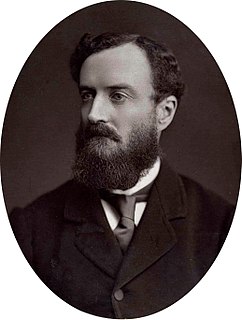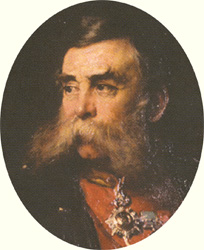
A magazine is a periodical publication which is printed in gloss-coated and matte paper or electronically published. Magazines are generally published on a regular schedule and contain a variety of content. They are generally financed by advertising, by a purchase price, by prepaid subscriptions, or a combination of the three.

The economy of New Zealand is a highly developed free-market economy. It is the 51st-largest national economy in the world when measured by nominal gross domestic product (GDP) and the 67th-largest in the world when measured by purchasing power parity (PPP). New Zealand has a large GDP for its size and population. The country has one of the most globalised economies and depends greatly on international trade – mainly with Australia, the European Union, the United States, China, South Korea, Japan and Canada. New Zealand's 1983 Closer Economic Relations agreement with Australia means that the economy aligns closely with that of Australia.

The Department of the Treasury (USDT) is the national treasury of the federal government of the United States where it serves as an executive department. The department oversees the Bureau of Engraving and Printing, and the U.S. Mint; these two agencies are responsible for printing all paper currency and coins, while the Treasury executes its circulation in the domestic fiscal system. The USDT collects all federal taxes through the Internal Revenue Service; manages U.S. government debt instruments; licenses and supervises banks and thrift institutions; and advises the legislative and executive branches on matters of fiscal policy. The Department is administered by the Secretary of the Treasury, who is a member of the Cabinet. The Treasurer of the United States has limited statutory duties, but advises the Secretary on various matters such as coinage and currency production. Signatures of both officials appear on all Federal Reserve notes.

Protectionism is the economic policy of restricting imports from other countries through methods such as tariffs on imported goods, import quotas, and a variety of other government regulations. Proponents argue that protectionist policies shield the producers, businesses, and workers of the import-competing sector in the country from foreign competitors. However, they also reduce trade and adversely affect consumers in general, and harm the producers and workers in export sectors, both in the country implementing protectionist policies and in the countries protected against.

The Navigation Acts, or more broadly the Acts of Trade and Navigation, was a long series of English laws that developed, promoted, and regulated English ships, shipping, trade, and commerce between other countries and with its own colonies. The laws also regulated England's fisheries and restricted foreigners' participation in its colonial trade. While based on earlier precedents, they were first enacted in 1651 under the Commonwealth. The system was reenacted and broadened with the restoration by the Act of 1660, and further developed and tightened by the Navigation Acts of 1663, 1673, and 1696. Upon this basis during the 18th century, the acts were modified by subsequent amendments, changes, and the addition of enforcement mechanisms and staff. Additionally, a major change in the very purpose of the acts in the 1760s — that of generating a colonial revenue, rather than only regulating the Empire's trade — would help lead to revolutionary events, and major changes in implementation of the acts themselves. The Acts generally prohibited the use of foreign ships, required the employment of English and colonial mariners for three quarters of the crews, including East India Company ships. The acts prohibited the colonies from exporting specific, enumerated, products to countries and colonies other than those British, and mandated that imports be sourced only through Britain. Overall, the Acts formed the basis for English British overseas trade for nearly 200 years, but with the development and gradual acceptance of free trade, the acts were eventually repealed in 1849. The laws reflected the European economic theory of mercantilism which sought to keep all the benefits of trade inside their respective Empires, and to minimize the loss of gold and silver, or profits, to foreigners through purchases and trade. The system would develop with the colonies supplying raw materials for British industry, and in exchange for this guaranteed market, the colonies would purchase manufactured goods from or through Britain.

Hercules George Robert Robinson, 1st Baron Rosmead,, was a British colonial administrator who became the 5th Governor of Hong Kong and subsequently, the 14th Governor of New South Wales, the first Governor of Fiji, and the 8th Governor of New Zealand. From June 1859 until August 1896, he was known as Sir Hercules Robinson.

Triangular trade or triangle trade is a historical term indicating trade among three ports or regions. Triangular trade usually evolves when a region has export commodities that are not required in the region from which its major imports come. Triangular trade thus provides a method for rectifying trade imbalances between the above regions.

Economic sanctions are commercial and financial penalties applied by one or more countries against a targeted self-governing state, group, or individual. Economic sanctions are not necessarily imposed because of economic circumstances—they may also be imposed for a variety of political, military, and social issues. Economic sanctions can be used for achieving domestic and international purposes.

Michael Edward Hicks Beach, 1st Earl St Aldwyn,, known as Sir Michael Hicks Beach, Bt, from 1854 to 1906 and subsequently as The Viscount St Aldwyn to 1915, was a British Conservative politician. Known as "Black Michael", he notably served as Chancellor of the Exchequer from 1885 to 1886 and again from 1895 to 1902 and also led the Conservative Party in the House of Commons from 1885 to 1886. Due to the length of his service, he was Father of the House from 1901 to 1906, when he took his peerage.

The Government Legal Department is the largest in-house legal organisation in the United Kingdom's Government Legal Service.

Thomas Caverhill Jerdon was a British physician, zoologist and botanist. He was a pioneering ornithologist who described numerous species of birds in India. Several species of plants and birds including Jerdon's baza, Jerdon's leafbird, Jerdon's bushlark, Jerdon's nightjar, Jerdon's courser, Jerdon's babbler and Jerdon's bush chat are named after him.

The Primrose League was an organisation for spreading Conservative principles in Great Britain. It was founded in 1883.

Holey dollar is the name given to coins used in the early history of two British settlements: Prince Edward Island and New South Wales. The middle was punched out of Spanish dollars, creating two parts: a small coin, known as a "dump" in Australia, and a "holey dollar". This coin was one of the first coins struck in Australia.

Abraham "Abba" Ptachya Lerner was a Russian-born British economist.

The United States trade dollar was a dollar coin minted by the United States Mint to compete with other large silver trade coins that were already popular in East Asia. The idea first came about in the 1860s, when the price of silver began to decline due to increased mining efforts in the western United States. A bill providing in part for the issuance of the trade dollar was eventually put before Congress, where it was approved and later signed into law as the Coinage Act of 1873. The act made trade dollars legal tender up to five dollars. A number of designs were considered for the trade dollar, and an obverse and reverse created by William Barber were selected.

Field Marshal Sir John Lintorn Arabin Simmons was a British Army officer. Early in his career he served as Inspector of Railways, Secretary of the Railways Commission and then Secretary of the Railway Department under the Board of Trade. He went on to be British Commissioner with the Turkish Army providing advice to General Omar Pasha during the Crimean War. He assisted the Turks at the defence of Silistra and then led them at the Battle of Giurgevo before landing with them at the Battle of Eupatoria and remaining with them for the Siege of Sevastopol. After that he became British Consul in Warsaw, Commander, Royal Engineers at Aldershot and then Director of the Royal Engineer Establishment in Chatham. He went on to be Lieutenant-Governor of the Royal Military Academy and subsequently Governor of the Academy. His last appointments were as Colonel Commandant of the Royal Engineers, as Inspector General of Fortifications and then as Governor of Malta.

Arthur's Home Magazine (1852-ca.1898) or Ladies' Home Magazine was an American periodical published in Philadelphia by Timothy Shay Arthur. Editors Arthur and Virginia Francis Townsend selected writing and illustrations intended to appeal to female readers. Among the contributors: Mary Tyler Peabody Mann and Kate Sutherland. In its early years the monthly comprised a selection of articles originally published in Arthur's weekly Home Gazette. Its nonfiction stories contained occasional factual inaccuracies for the sake of a good read. A contemporary review judged it "gotten up in good taste and well; and is in nothing overdone. Even its fashion plates are not quite such extravagant caricatures of rag-baby work as are usually met with in some of the more fancy magazines." Readers included patrons of the Mercantile Library Association of San Francisco.

The Sydney punchbowls, made in China during the Jiaqing Emperor's reign (1796–1820) over the mid-Qing dynasty, are the only two known examples of Chinese export porcelain hand painted with Sydney scenes and dating from the Macquarie era. The bowls were procured in Canton about three decades after the First Fleet's arrival at Port Jackson where the British settlement at Sydney Cove was established in 1788. They also represent the trading between Australia and China via India at the time. Even though decorated punchbowls were prestigious items used for drinking punch at social gatherings during the 18th and 19th centuries, it is not known who originally commissioned these bowls or what special occasion they were made for.

The Trade Facilities Acts were a series of Acts of the Parliament of the United Kingdom that were designed to alleviate the problem of large scale unemployment in the aftermath of the First World War. Acts were passed in 1921, 1922, 1924, 1925 and 1926 by four successive governments. The acts enabled companies to borrow money, with the capital and interest guaranteed by the government, for projects which would create employment. By the end of the scheme in March 1927, almost £75 million had been guaranteed to a range of industries. Whether the acts had a significant effect on unemployment has been debated, but one lasting legacy was the funding of the extension and refurbishment of what became the London Underground Northern line.


















